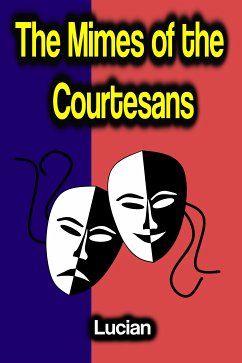The Mimes of the Courtesans Lucian - A collection of fifteen erotic stories based Lucian (2nd Century A.D. Greece), with numerous erotic illustrations, in a Beardsley style of art deco, by Charles Cullen. These are tales so descriptive of one phase of Greek life, discussed with the frankness of one not immoral, but influenced by a system of morals that finds everything that is natural both beautiful and good.
Dieser Download kann aus rechtlichen Gründen nur mit Rechnungsadresse in A, B, BG, CY, CZ, D, DK, EW, E, FIN, F, GR, H, IRL, I, LT, L, LR, M, NL, PL, P, R, S, SLO, SK ausgeliefert werden.














